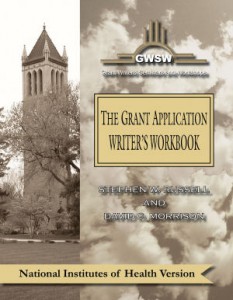Dear GWSW:
I have considered inclusion of two advisers to help interpret (data) and write up results, but mostly for a relatively limited time/effort. However, they are significant contributors to my field with substantive expertise in the topic. If listed as Other Significant Contributors–collaborators, do they need person months and/or a sub-award? How would you suggest that I categorize these individuals on my R21 NIH grant application? Thank you! G.B.
Dear G. B.,
First, remember that a collaborator is a person who will have a relatively limited commitment to the project, will usually not have a financial interest in the project and will not be included as having person months dedicated to the project. A consultant is, by definition, an individual with acknowledged expertise in the field who will contribute that specific expertise to the proposed research project. That individual will usually not also have person months listed on the project but will receive an honorarium for their contributions (unless the consultant is affiliated with the same academic institution as the applicant, in which case a consulting fee is usually not required).
In your case, you indicate that the need is for assistance of two “advisers” who will be involved in helping you to “interpret and write up results”. If these are essential responsibilities that these advisers will provide, would it be fair for reviewers to conclude that you, as the Principal Investigator, would not be capable of interpreting the results of your studies and/or writing up the results? The potential problem with such a situation is that it would be possible that a reviewer might have concerns that, unless the interpretation of results is anticipated to be exceptionally complicated and/or the writing up of the results of the study unusually challenging, you might not actually be the best qualified person to be the Principal Investigator responsible for directing the work in the proposed R21 grant application. (This situation would be particularly true if either of your advisers were to be an individual who served as a mentor to you when you were still in training.) Without knowing more about exactly what their role would be, it is somewhat difficult to assess the extent to which this might prove problematic. Nevertheless, it is probably something worth thinking very carefully about as to whether this/these individual(s) would truly be required, as opposed to being your “security blanket(s)”.
In this latter respect, it can be very tempting to want to include on your proposal individuals who are likely to be recognized by the reviewers of your application as having acknowledged expertise in the field. This practice is often based upon the (usually incorrect) assumption that their inclusion on your application will enhance your likelihood of having a successful application. In almost every situation, this is not a correct expectation, since it can have the reverse effect in reducing reviewers’ confidence in your own research skills.
In any case, if, as you indicate, the contribution of your proposed advisers’ contribution will be only toward the end of the project and “for a limited amount of time/ effort”, I think it would be unusual to assign to them specific person months, and equally difficult to truly justify. In addition, you probably do not want to assign a sub-award (presumably they would be at an institution different than your own), primarily because of this limited commitment of time and effort. An additional issue to be considered in establishing sub-awards, especially to individuals at different institutions, is that the indirect costs associated with that alternative institution must be calculated as direct costs to you as part of your relatively limited budget available through the R21 award mechanism.
The bottom line here is that, all other things being equal, you may ultimately conclude that you absolutely need these individuals because of their expertise. If this would be the case and they do have readily acknowledged expertise in the area of your research, you might want to include one of them as a consultant and provide an annual honorarium, and the other as a collaborator. Neither of these roles would require person months. As an additional point, in your written justification for their inclusion, you need to avoid phrases such as “internationally-recognized” or “world-renowned”, since these are simply qualitative adjectives that have no scientific basis. Instead, restrict yourself to only readily documentable facts regarding their scientific qualifications.
As is usual with our recommendations, however, if there are any questions, you should always feel comfortable to inquire of an NIH Program Officer in order to get additional input. You might note that this is one of the issues that is addressed in great detail in our NIH version of The Grant Application Writer’s Workbook, 2016 edition.
Best regards,
GWSW Staff

